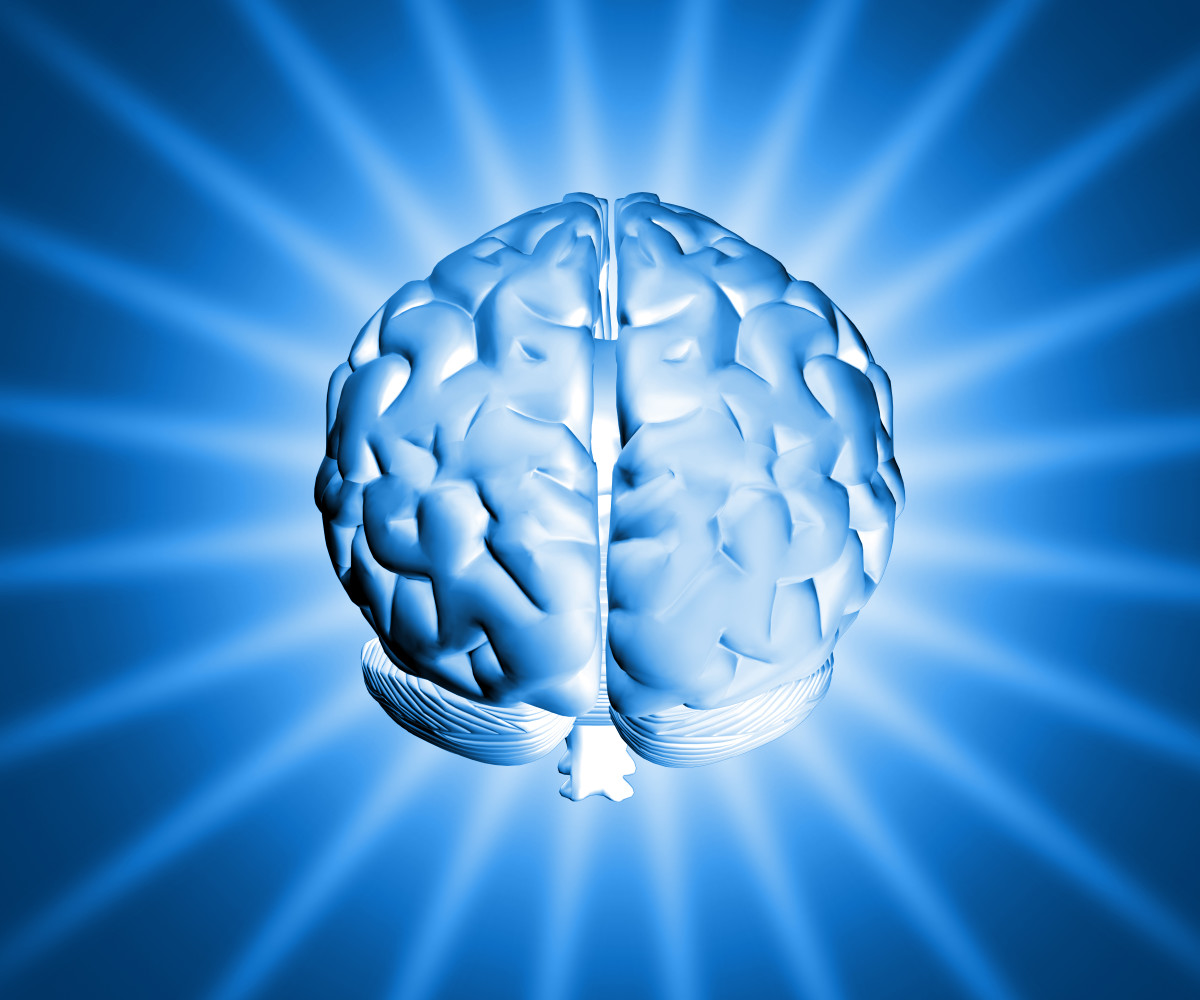Recognizing Mental Illness in Others
When the Mind Becomes Unbalanced
Mental Illness - What Causes It?
There are no patent explanations of the causes of mental illness. It can be diagnosed in toddlers, teens and adults. It would be a simple matter to lay the cause of mental illness at the door of "extreme stress." Yet, that isn't a sufficient diagnosis of why some are mildly mentally unbalanced and others are more seriously so. Most mental health professionals today agree that mental illness may be a combination of factors such as:
. Biology
. Heredity
. Environmental stress
. Psychological trauma
In children, schizophrenia is usually seen as a child repeating certain things over and over, a disconnection from reality over a prolonged period, hearing voices, seeing imaginary sights, or believing others are controlling their thoughts. (Ref. http://www.webmd.com/schizophrenia/ss/slideshow-schizophrenia-overview).
As children enter school, these characteristics become more pronounced and often alienate the child from other children in their social circles who notice their "peculiar" behavior.
Most adults recall that their school days always included one child who was "different" or a "loner." In the case of mentally ill children, professionals attribute the disease to biology, heredity and in some cases early childhood abuse, since mentally ill children have not reached the age of reason.
The Onset of Mental Illness in Teens
When mental illness is apparent in teens, it's extremely important for parents to seek help before their child becomes seriously depressed or acts out. According to the National Alliance on Mental Illness (NAMI), (ref: https://www.nami.org/Find-Support/Teens-and-Young-Adults), one in five teens develops some form of mental illness. Half of these teens develop mental illness by age 14 and more than three-quarters by age 24.
The most prevalent type of mental illness among teens is depression. Parents are often reticent about admitting their child is depressed or shows signs of mental illness. This may be the point at which teens may also be suffering from bipolar disorder.
The National Institute of Mental Health describes bipolar disorder as "manic-depressive illness," and "a brain disorder that causes unusual shifts in mood, energy, activity levels, and the ability to carry out day-to-day tasks."
The clue to bipolar disorder is the extremes of mood shifts, energy level and inability to consistently perform day-to-day tasks. Ref: http://www.nimh.nih.gov/health/topics/bipolar-disorder/index.shtml.
When Reasonable Adults Become Unreasonable
Good communication between adults is the result of several things:
. Articulation of facts and lack of bias
. Negotiation skills
. The ability to reason conflicts out without force or violence
Certainly, one of the more obvious characteristics of mental unbalance is the inability for an adult to be reasonable. As the adult edges closer to the cliff of mental illness, they becoming demanding, tyrannical and unable to be reasoned with on any level.
Mental health professionals call this sociopathic narcissism. Some of those who suffer from this mental illness are individuals who thrive solely on control of others and the world around them. This control becomes a manic obsession.
These individuals are incapable of long term, meaningful relationships. Sociopathic narcissists are very often physically and mentally abusive to others and may become extremely violent, at which point they have regressed into psychopathic behavior.
Sociopathic narcissists must be ruthlessly judgmental of others in order to keep their world in control. Their only rules are those they choose for themselves and those who live or work with them. Their obsession with control is a result of combined massive guilt complexes and severe emotional insecurity. To a sociopathic narcissist, their world is completely ordered by them and must remain in perfect order, so they can maintain ultimate control.
A clearer definition of this type of mental illness is found in the 2013 release of the 5th Ed. of the "Diagnostic and Statistical Manual of Mental Disorders (DSM-5)," released by the American Psychiatric Association (Ref. www. psychiatry.org/). The APA "lists both sociopathy and psychopathy under the heading of Anti-Social Disorders (ASPD). These disorders share many common behavioral traits which lead to the confusion between them."
The key traits sociopaths and psychopaths share include:
- A disregard for the rights of others
- A tendency to display violent behavior
- A disregard for laws and social mores
- A failure to feel remorse or guilt
- Lack of a sense of conscience
It is extremely difficult to live or work with these unbalanced individuals for a prolonged period without suffering the effects of extreme degrees of stress and feelings of helplessness.
It's interesting to note that the murderer of 30 women from 1974 until 1979, Ted Bundy, was described as charming and handsome. Another of these sociopathic narcissists is John Wayne Gacy, who first tortured and then murdered 33 men. Gacy is widely known for dressing up as a clown while entertaining hospitalized children.
This underscores the APA's statement that sociopaths disregard the rights of others, laws, social mores and are unable to feel remorse for their behavior. Note that sociopaths, unlike psychopaths and schizophrenics, don't hear voices.
Other Types of Mental Illness
Mental illnesses may be borne of obsessive/compulsive behaviors. These range from obsessions of ownership, power, eating disorders like bulimia and anexoria and hoarding disorders, where the person experiences distress at the thought of getting rid of excessively accumulated items, long past value or usefulness.
Alcohol, drugs, gambling and sex are part of obsessive/compulsive mental disorders. Others, like dementia are brought on by biological aging or are a result of brain damage from illness or accident.
One other often disregarded mental illness is a result of the environment. This form of mental illness is often more difficult to diagnose since it involves a wider range of environmental issues. Exposure to toxic chemicals and hazardous waste can cause brain damage, which can result in various manias or mental illness.
Acknowledging Mental Illness
Rather than treat mental illness as a disease, there is still reticence to admit a loved one or friend is not mentally balanced, even when all the signs are evident. Sadly, mental illness is still pushed to a back burner by individuals and professionals. It's only when the mental illness is too obvious to ignore that help is sought or offered. Although the mentally ill are no longer treated as they were in the Dark Ages, there is an inability to recognize mental illness and treat it more efficiently and expediently.
Fortunately, many schools in the US have counselors on staff who are able to see problems with students who are depressed or acting out. These children receive immediate attention via their school's recommendations. Teens tend to avoid asking adults for help or assistance when they feel depressed. Many suffer in silence, believing only their peers can help.
Although the attitudes are changing regarding mental illness, they are not changing fast enough or for optimal results. Much has been written about the stigma of mental illness. Oddly, there is no stigma for the disease of alcoholism, which often destroys as many lives as mental illness.
In conclusion, there is an interesting thought about why mental illness has such a stigma attached. It is provided by the UK Mental Health Organization (Ref: http://www.mentalhealth.org.uk/help-information/mental-health-a-z/s/stigma-discrimination/):
"People with mental health problems say that the social stigma attached to mental ill health and the discrimination they experience can make their difficulties worse and make it harder to recover."
This is, perhaps, the most astute articulation of the problem worldwide of reducing the occurrences of mental illness and treating this disease in proper medical perspective. Hopefully, future generations will arrive at the conclusion that good mental health is inextricably tied to good physical health and have reached a level of professional mental health to quickly diagnose this medical difficulty.






